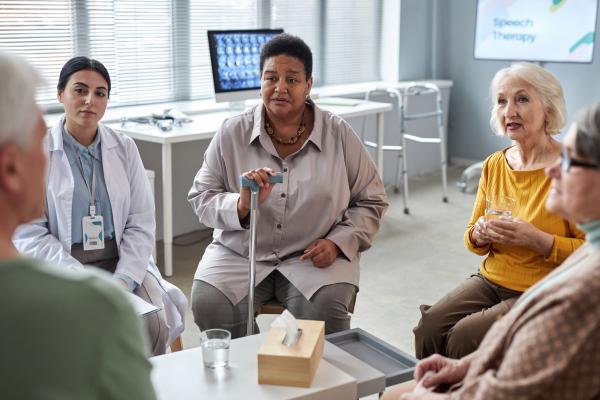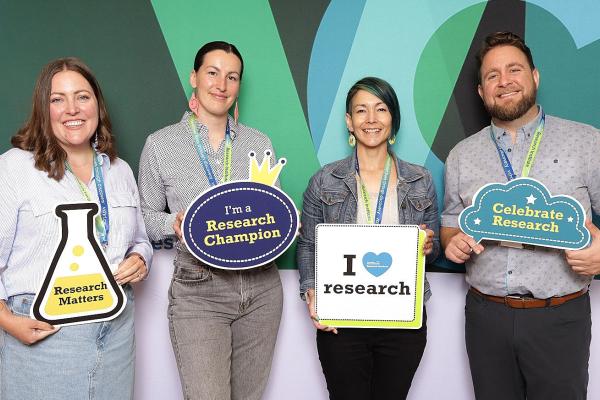News Release
Vancouver – Scientists have made a breakthrough in understanding the origin and development of cancer that occurs in the uterus and ovary simultaneously, substantiating an approach to managing the disease practiced by doctors in British Columbia.
Known as synchronous endometrial and ovarian (SEO) cancer, tumours on the endometrial lining of the uterus appear simultaneously with tumours on the ovary, and vice versa. The spread of a tumour from one organ to another (known as metastasis) is virtually always an indication of an advanced stage cancer that requires aggressive treatment with chemotherapy and/or radiation therapy. However, SEO tumours behave as if they are independent, localized early-stage tumours that often respond well to surgery alone. This controversy regarding whether SEO cancer is metastatic has led to widely differing treatments.
By sequencing frequently mutated cancer genes in 18 pairs of SEO tumours, a new study led by scientists at the BC Cancer Agency, Vancouver Coastal Health Research Institute and the University of British Columbia (UBC) and published in the Journal of the National Cancer Institute (JNCI) has provided definitive evidence that each pair of SEO tumours are in fact genetically related clones.
The scientists explain the apparent paradox of the same cancer appearing simultaneously as two independent early-stage tumours on two different organs by invoking a novel process they call “pseudo-metastasis”. They propose that the process is distinct from usual metastasis in that the cancer likely spreads through the fallopian tube, not the blood stream, and that the host organs (ovary and uterus) provide a unique environment where these cancers are initially constrained.
“Pseudo-metastasis is still something of a mystery,” says Dr. Michael Anglesio, lead author and Research Associate in the department of Molecular Oncology at the BC Cancer Agency. “Whether the initial event takes place in the ovary or the endometrium, and what keeps cells temporarily restricted to these special organs without metastasizing to the rest of the body, are things that we are now researching.”
Pseudo-metastasis has important implications for treatment. Here in B.C., SEO cancer patients have generally been treated conservatively by surgically removing the tumours. On a global scale, however, many women with SEO tumours have received aggressive treatment designed to fight late-stage metastatic cancer.
“This research will have an immediate impact on the management of ovarian and endometrial cancers,” says Dr. David Huntsman, Principal Investigator for the study, Distinguished Scientist at the BC Cancer Agency and Professor of Laboratory Medicine and Obstetrics and Gynaecology at UBC. “It confirms that we’ve been taking the right approach to SEO cancers in British Columbia. This should influence treatment of the disease around the world so women do not undergo needlessly aggressive treatment.”
Meanwhile, a highly complementary study from Memorial Sloan Kettering Cancer Center (MSKCC), published in the same issue of JNCI, is giving both research teams overwhelming confidence in their findings.
“We are delighted that the findings of our studies are in agreement,” says Dr. Britta Weigelt, Assistant Member of the Department of Pathology at MSKCC. “Together, these studies have resulted in a paradigm shift in the way SEO cancers are perceived. By bringing together pathology and genetics, we have solved a long standing biological question and clinical dilemma.”
The BC Cancer Agency, VCHRI and UBC study was funded by the Gray Family Ovarian Clear Cell Carcinoma Research Resource, the BC Cancer Foundation, the Vancouver General Hospital and UBC Hospital Foundation and the Canadian Cancer Society.
The paper, Synchronous Endometrial and Ovarian Carcinomas: Evidence of Clonality, is available from JNCI, here. The MSKCC paper is available, here. And a JNCI editorial about the two papers is available, here.
Quick Facts:
- Synchronous endometrial and ovarian cancers have been reported in five to 10 per cent of endometrial or ovarian cancers.
- Advanced endometrial-like (endometrioid) ovarian cancers are the third most common form of ovarian cancer and roughly half have already metastasized to the uterus at time of presentation.
- Endometrial cancer is the most common type of uterine cancer and starts in the lining of the uterus. Cancer of the uterus is the fourth most commonly diagnosed cancer in B.C.
- Ovarian cancer It is the fifth most common cause of cancer death overall.


